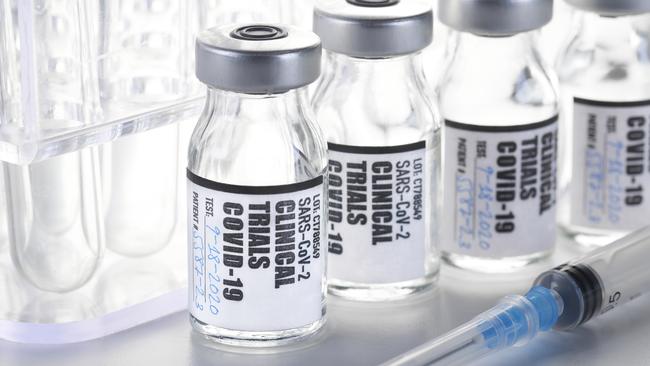Global teamwork vital in developing vaccine
It is clear global co-ordination will be needed to ensure these potential medicines can be developed, manufactured and supplied to people all around the world.

Perhaps it is risky to look back when in the midst of a global problem, particularly one as significant as COVID-19. Yet it is encouraging to see how much teamwork has taken place globally in the search for potential vaccines and treatments.
We have seen unparalleled collaboration between governments, regulators, public health bodies, companies and the academic and scientific communities across the entire healthcare sector, coming together to find solutions.
The need for vaccines and treatments is obvious. They are essential for helping end the pandemic and, together, the life sciences community is working with extraordinary speed and safeguarding quality and safety to achieve in a matter of months what would typically take years.
It is still too early to know what the solution or solutions will look like. It is, however, clear global co-ordination will be needed to ensure these potential medicines can be developed, manufactured and supplied to people all around the world.
Now, the focus is on finding the scientific breakthroughs to help prevent the spread of the virus and minimise its effect on those infected. The research community has been wonderfully unterritorial in seeking an answer to this problem. There is a feeling of togetherness and that togetherness is the only way we will succeed.
For example, researchers at the University of Sydney and Fudan University released the first sequence data of the genetic code for SARS-CoV-2, the virus that causes COVID-19 in humans, in January this year. This team made available the initial draft genetic sequence openly, broadly and very quickly to allow everyone to work on finding solutions — precisely what you would hope to see from the global scientific community.
We have seen similar approaches in our efforts to test and find potential medical interventions. For example, at Pfizer we committed to making available research tools and insights it has developed to address COVID-19 with the broader scientific community, resulting in more than 100 potential vaccine approaches now under way across the globe, including about 30 potential COVID-19 vaccine approaches already in clinical evaluation. We have started to see preliminary results from several of those trials.
Pfizer’s partnership with BioNTech for a potential COVID-19 vaccine is a natural extension of the collaboration we established in 2018 to develop mRNA-based vaccines against influenza. When the pandemic broke, together we pivoted very early on to harness BioNTech’s proprietary mRNA vaccine platforms and Pfizer’s development, manufacturing, commercial and regulatory capabilities in distributing vaccines globally, to rapidly evaluate and advance potential COVID-19 vaccine candidates.
Having an established partnership meant we knew each other’s capabilities and were well placed to determine what was needed to try to surmount this worldwide challenge, with speed and efficiency. After assessing four potential candidates in phase 1/2 studies in the US and Germany, Pfizer and BioNTech chose a lead mRNA vaccine candidate, BNT162b2, which is now being investigated in a global phase 3 clinical study. This is a major step forward in our progress towards providing a potential vaccine to help fight the pandemic.
We recognise battling this pandemic is far too great a problem for any one organisation. A great learning from this pandemic for all organisations is the benefit of having relationships and infrastructure in place to enable quick and effective action when needed.
While we continue to work to find solutions, it is critical from a human and economic perspective to keep people as healthy as possible. Healthcare exists within an economic reality, which means we need healthy communities to rebuild the Australian economy after its first recession in 30 years. To achieve this, healthcare needs to be front and centre.
Medicines Australia research shows a one-year increase in life expectancy leads to a 4 per cent increase in GDP, and the economic loss arising from early retirement due to ill health was $45.3bn in 2017 — a figure tipped to increase to $53.4bn by 2025.
What this pandemic has highlighted is the critical role healthcare innovation and collaboration plays in our communities, and the value the sector provides in coming together to push the boundaries of science and human endeavour.
I live and breathe this promise of healthcare innovation every single day. It is what is underpinning our future. I am hopeful when this is over — and at some point, it will be — we see the lessons learned from COVID-19 are retained and used to provide a platform for continued collaboration across the R&D and healthcare sector.
Samantha O’Connor qualified in Australia as a molecular microbiologist and is the executive director for Strategy and Business Planning, Centres for Therapeutic Innovation, Pfizer.







To join the conversation, please log in. Don't have an account? Register
Join the conversation, you are commenting as Logout